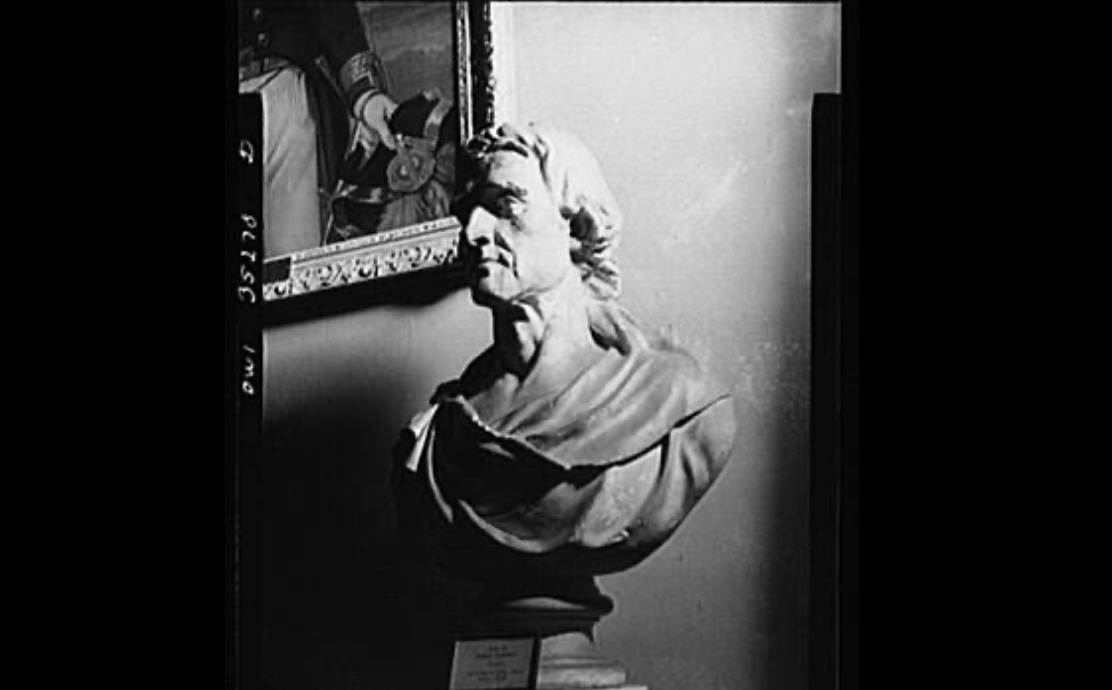Jefferson's Ghost
Notes from my visit to Monticello
My notes from my visit to Monticello
As soon as you arrive, a soft mist hangs in the air, blurring the view, but Jefferson's house gradually takes form, rising from the hillside.
You glance around and realize—his home isn’t beautiful in a conventional sense. It wasn’t built to impress; it was crafted to embody something more profound, something inherently Jeffersonian. It was built to endure.
You wander slowly along the pathways, struck by the thought of yourself—a creature of the 21st century—walking in Jefferson’s footsteps. A faint dizziness sets in as the surreal weight of history surrounds you.
You look at the art, the books, the tables, the wood—so near, yet somehow distant, they are from another time.
As you wander through his world, you can't help but reflect on Jefferson’s grandiosity—a true Francophile, as suggested by his bust of Voltaire, the champion of free speech. A man of refined taste and intellect, an appreciator of the arts, a reader, a student of John Locke. You come to realize how rare it is to encounter a mind like his, how remarkable it must have been to live in his epoch, to have crossed paths with such a man.
Of course, there are some who prefer Benjamin Franklin, Alexander Hamilton, or John Adams, but how can anyone dismiss the genius of Jefferson of making Freedom of Speech a pillar, if not the pillar, the king of all rights? How many still today have to suffer for having their whispers heard? How many must die for daring to share even the slightest criticism?
“God hath created the mind free, and manifested his supreme will that free it shall remain”.
As you ponder this, continuing to wander, you notice how the others in your group are absorbed by what they see. You feel you should be, too, but your mind drifts elsewhere, caught up in a question that lingers—do we truly appreciate Jefferson? Lost in thought, you walk, a chill creeping over you, almost as if his ghost hovers nearby.
You gaze out the window, then up at the ceiling, and feel nothing but a certain sweet quietude. Jefferson’s house doesn’t feel like your own, but somehow, you belong here. It’s a place where you feel safe, as though you could sink into a chair by the window with a coffee in hand, letting your thoughts drift for hours.
Inside Monticello, you know your ideas—no matter how absurd, ridiculous, or half-formed—are safe. Only in Jefferson’s house can you truly share them without fear. He dedicated his life to securing that freedom for you.
As the tour guide shares gossip about Jefferson’s family and others marvel at his luxurious lifestyle compared to his contemporaries, you feel annoyed, bored even.
You let them walk a few steps ahead, giving yourself a moment to take in the sight of his library and imprint the scent of the wooden shelves in your memory.
The tour ends, but you feel an urge to go back—this time alone, with no one around. You want to listen to the silence of the walls, touch the tables, close your eyes, and somehow recall every title in Jefferson’s library.
As you leave, you feel fortunate that this place has been preserved, that his spirit still lingers there, that a man of his stature existed.
Because when you really think about it, how many are there like Jefferson? Who would fight for your right to criticize, to protest, to liberate your mind?
Man is inherently drawn to tyranny and despotism, and Jefferson’s ability to rise above this impulse remains his most profound legacy.
May he be forever blessed.



Beautiful and well-written. Thank you.
Well done, Zineb. It's tragic so many people only see the negatives of Jefferson's life, while ignoring his positive contributions to America and the world.